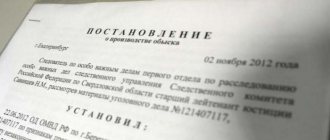ST 238 of the Criminal Code of the Russian Federation.
1. Production, storage or transportation for marketing purposes or sale of goods and products, performance of work or provision of services that do not meet the requirements for the safety of life or health of consumers, as well as unlawful issuance or use of an official document certifying the compliance of these goods, works or services with safety requirements - shall be punishable by a fine in the amount of up to three hundred thousand rubles, or in the amount of the wages or other income of the convicted person for a period of up to two years, or by compulsory labor for a term of up to three hundred and sixty hours, or by restriction of freedom for a term of up to two years, or by forced labor for a term of up to two years, or imprisonment for the same term.
2. The same acts, if they: a) were committed by a group of persons by prior conspiracy or by an organized group; b) committed in relation to goods, works or services intended for children under six years of age; c) caused by negligence the infliction of serious harm to health or the death of a person - shall be punishable by a fine in the amount of one hundred thousand to five hundred thousand rubles, or in the amount of the wages or other income of the convicted person for a period of one to three years, or by forced labor for a term of up to five years, or imprisonment for a term of up to six years with a fine in the amount of up to five hundred thousand rubles or in the amount of wages or other income of the convicted person for a period of up to three years, or without it.
3. Acts provided for in parts one or two of this article, resulting through negligence in the death of two or more persons, are punishable by forced labor for a term of up to five years or imprisonment for a term of up to ten years.
Arbitrage practice
Judicial practice on the article in question does not have a uniform approach.
This is due to the correct application of the norm and its delimitation from adjacent compounds. The text of the article is limited, which leads to the need to turn to additional sources of law in the field of safety of goods, services and works. Some of them do not agree with each other, which leads to a broad or, conversely, narrow interpretation of the article. In practice, this is expressed in an acquittal or conviction.
Often problems arise when establishing the objective side. Thus, the mere fact of the absence of a certificate of conformity does not mean that the product has quality violations. Inadequate quality must be established on the basis of examinations.
Thus, the article applies to persons selling products with quality violations. A mandatory condition is the creation of a threat to human health as a result of the use of such products. Products produced or stored for subsequent sale are also taken into account.
We bring to your attention an interesting video that discusses the nuances of applying Article 238 of the Criminal Code of the Russian Federation in modern conditions of Russia: https://www.youtube.com/embed/f9ZwUI6A1bM
Consumer rights in case of delay
Make a claim
When the contractor has provided services or carried out work in violation of the initial or final deadline under the contract, the customer makes a claim from Art. 28 of the Law:
- set a new deadline, write it down in the contract and bring the matter to an end;
— give the order to another contractor or complete it yourself and demand compensation for expenses;
— make a discount on your order;
- cancel the order and return the payment.
When the customer refuses the contract and does not accept the result, the contractor is not reimbursed for costs and the work is not paid. But if the result is accepted despite the delay, the consumer pays for it.
For example, a customer took a raincoat that was repaired later than expected. He must pay for the seamstress's services. If I hadn’t picked it up, there would have been no need to pay.
The requirement is chosen by the consumer, not the performer. It is impossible to limit the choice in the contract - Art. 16 of the Law.
Ask for damages
Along with the claim, the consumer has the right to ask for compensation for losses.
Calculate penalties
For violation of the deadline, the contractor pays a penalty in the amount of 3% of the price of the order or stage of work for each day of delay. This rule applies even if the newly established deadlines are violated. The total amount of the penalty cannot be greater than the price of the order or stage itself - Art. 28 of the Law.
When there is no responsibility
The contractor is relieved of all responsibility if he proves that the customer himself is to blame for the delay or that force majeure occurred - Art. 28 of the Law.
Provision of services of inadequate quality under the Criminal Code of the Russian Federation
Dear readers! Our articles talk about typical ways to resolve legal issues, but each case is unique. If you want to find out how to solve your particular problem, call:
8 Moscow8 St. Petersburg
or if it’s more convenient for you, use the online consultant form!
All consultations with lawyers are free.
Services are considered inappropriate when their use leads to a real threat to the health of an individual or group of people.
Typically, violations occur when providing the following services:
- medical;
- sanitary;
- transport;
- household, etc.
The provision of services is expressed in the repair and maintenance of household appliances, electronic equipment, transport, dry cleaning, hairdressing and public services, in the field of food, tourism, and trade.
Lawyers recommend knowing how to file a complaint against a doctor with the Ministry of Health.
Complex qualification issues
1. The problem of determining the status of a person as a subject of the crime under consideration
Federal Law “On the quality and safety of food products”
Federal Law “On the sanitary and epidemiological welfare of the population”
Subjects:
Individual entrepreneurs, individuals, legal entities.
2. Marketing of food products or the presence of such a marketing purpose means that the food products sold must be intended for consumption and not for feeding livestock.
3. Goods and food products sold or intended for sale must not meet the requirements for the safety of life and health of consumers. The properties and chemical composition of food products and goods must always be established on the basis of actual research carried out on such goods or products.
The same rule applies according to the Russian Federation Post of September 29, 1997 No. 1263, which approves the provisions on the examination of low-quality and dangerous food raw materials.
4. The problem of establishing the subjective side of Art. 238 of the Criminal Code of the Russian Federation: The absence of a quality certificate, excise stamps, or licenses in itself indicates a violation of the legally established procedure for the circulation of alcohol-containing liquids and does not indicate that those detained are aware of the poor quality of the sale of goods or products.
Operational search activities:
1) During the activities, it is necessary to establish that the goods sold are intended for consumption;
2) If a person denies his knowledge of the poor quality of the goods or products sold, incl. because they have taken additional measures to establish such safety (for example, by eating it), it is necessary to ensure that the seller is familiar with the results of the examination, ensure the presence of public representatives, and then carry out a second investigation.
5. Who should be understood as a consumer in Art. 238 of the Criminal Code of the Russian Federation?
6. What must be understood by an official document, as the subject of Art. 238 of the Criminal Code of the Russian Federation?
The concept of an official document is given in the Federal Law “On Legal Deposit of Documents”.
However, the definition is not used for the purposes of criminal law.
An official document is a document certifying legal facts or events with which the law associates the onset of legal consequences in the form of the emergence, restoration, termination of rights and obligations (clause 35 of the RF Supreme Court Order No. 24 dated 07/09/2013 “On judicial practice in cases of bribery and about other corruption crimes”)
Activity
Another common measure is the assignment of various public works. In our case, goods and services that do not meet safety requirements are subject to punishment in the form of public or forced labor. Please note that only one measure can be applied. That is, either work or a fine.
Compulsory labor does not last very long. It cannot exceed 360 hours. In practice, you will have to serve your sentence for about a month. But forced labor takes longer. The maximum that a criminal faces according to Art. 238 of the Criminal Code of the Russian Federation is 2 years. The maximum punishment is not always assigned to the storage and production, as well as the provision of goods and services recognized as dangerous (not meeting safety). Only in some cases does this practice take place.
Object and subject of the crime
In the case of this article, we are talking about two objects - the health of the population, as well as the safety of services (works) and goods for the consumer’s life.
By object is meant a certain thing from the material world, its element, which was influenced in the process of committing a crime. In this case, these are, firstly, products, goods that do not meet the safety standards required to preserve the health of the potential consumer and his normal life. Secondly, the subject is official documents that certify the compliance of works (services) and goods with safety requirements. One of these, for example, is a product certificate.
In custody
Many citizens associate the Criminal Code with one completely logical punishment - imprisonment. Perhaps this is the most stringent measure. It once again makes you wonder whether it is worth committing a crime or not. In Art. 238 a similar measure also exists.
For the production, sale, storage and transportation of dangerous goods and products, as well as for performing work and providing services that do not comply with safety regulations, you can be sentenced to two years in prison. In which colony, the court decides. Most often, criminals are placed in correctional facilities.
Imprisonment for our current crime is not always punishable by such a long term. It is hoped that you will be given a shorter stay in prison. Many factors are taken into account here. But it’s still better to count on the maximum punishment. So that there are no surprises later.
Commentary on Article 238 of the Criminal Code of the Russian Federation
1. A consumer is a citizen who intends to order or purchase, or who orders, purchases or uses goods (work, services) exclusively for personal (household) needs not related to making a profit.
2. Safety of products, production processes, operation, storage, transportation and disposal - a state in which there is no unacceptable risk associated with causing harm to the life or health of citizens.
3. On the production, storage, transportation and sale of goods and products, see the commentary to Art. 171.1 CC.
4. Work is construction, installation, restoration and other work performed at the consumer’s request, in the process or as a result of which the consumer’s life or health is put at real risk; services are the provision of medical, sanitary-epidemiological, household, transport and other services, the use of which creates a real danger to the life or health of the consumer.
5. For goods (work, services) subject to mandatory certification, a certificate or mark of conformity is issued (Federal Law of December 27, 2002 N 184-FZ (as amended on December 30, 2009) “On Technical Regulation”). Certificate of conformity is a document certifying the object’s compliance with the requirements of technical regulations, provisions of standards, codes of practice and terms of contracts; mark of conformity - a designation used to inform consumers about the compliance of the certification object with the requirements of a voluntary certification system or a national standard.
6. Illegal issuance of a certificate of conformity means its illegal provision to a manufacturer of goods, work or services without certification or contrary to its negative results; Misuse of a certificate of conformity is characterized by the fact that the offender uses a certificate obtained illegally.
7. The crime is considered completed from the moment of completion of any of the acts specified in the law.
8. The subjective side is characterized only by direct intent.
9. Subject - a person who is the owner or manager of a commercial organization, an individual entrepreneur and has reached the age of 16 years; for the unlawful issuance of an official document certifying the compliance of the specified goods, works or services with safety requirements, the employee of the body carrying out the certification of these goods, works or services is responsible.
10. Qualified and especially qualified types of the crime in question are indicated respectively in parts 2 and 3 of this article.
www.gk-rf.ru
1. Production, storage or transportation for marketing purposes or sale of goods and products, performance of work or provision of services that do not meet the requirements for the safety of life or health of consumers, as well as unlawful issuance or use of an official document certifying the compliance of these goods, works or services with safety requirements , —
shall be punishable by a fine in the amount of up to three hundred thousand rubles, or in the amount of the wages or other income of the convicted person for a period of up to two years, or by compulsory labor for a term of up to three hundred sixty hours, or by restriction of liberty for a term of up to two years, or by forced labor for a term of up to two years. , or imprisonment for the same period.
a) committed by a group of persons by prior conspiracy or by an organized group;
c) caused by negligence the infliction of serious harm to health or the death of a person, -
shall be punishable by a fine in the amount of one hundred thousand to five hundred thousand rubles, or in the amount of the wages or other income of the convicted person for a period of one to three years, or by forced labor for a term of up to five years, or by imprisonment for a term of up to six years with a fine in the amount of up to five hundred thousand rubles or in the amount of wages or other income of the convicted person for a period of up to three years or without it.
3. Acts provided for in parts one or two of this article, resulting in the death of two or more persons through negligence, -
Start
Let's start with the simplest, most common and least dangerous measure. The point is that such a proposal is available in most cases. Criminal liability does not always mean imprisonment or restriction of freedom. Not at all. Art. 238 (Part 1) indicates that goods that do not meet safety requirements and the provision of dangerous services can be subject to a fine.
A monetary penalty is a completely humane punishment. It is very often used in practice. In this case, you can hope that you will be fined a maximum of 300,000 rubles. Or you will have to pay back income for a period not exceeding 2 years. Not the worst thing that can await a criminal. Nevertheless, a monetary penalty for an act committed, according to Art. 238, not particularly small. In most cases, criminal offenses are initially punishable by fines of up to 80-100 thousand rubles. But not in our situation.





